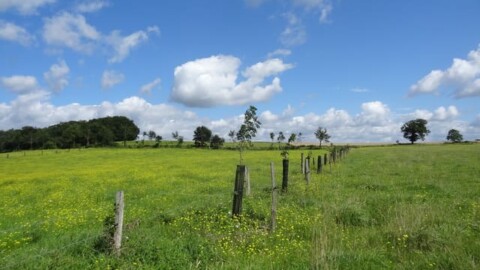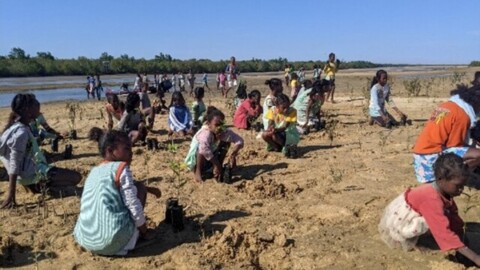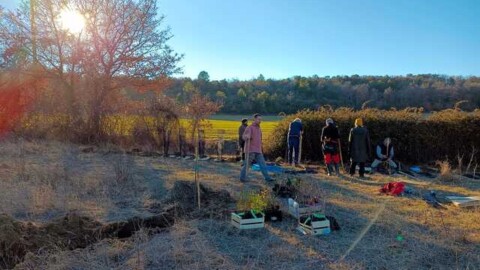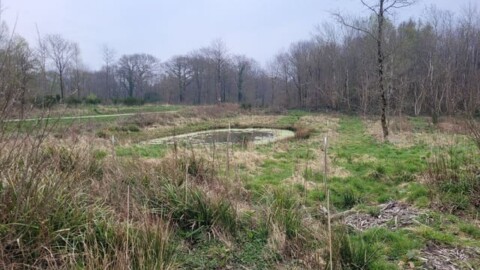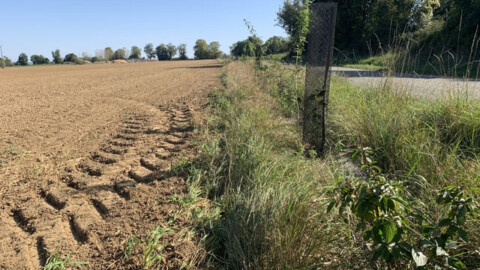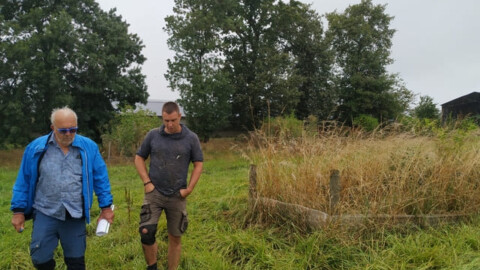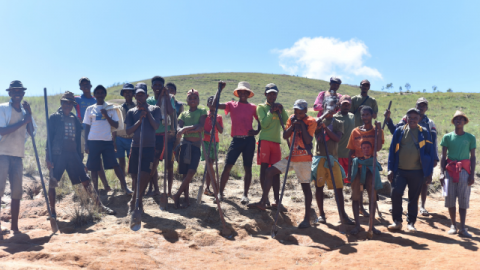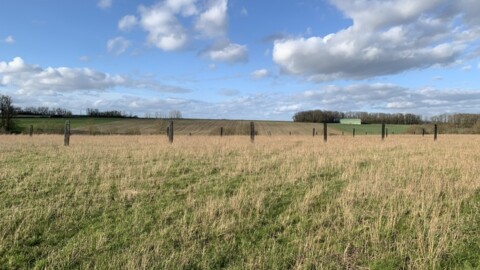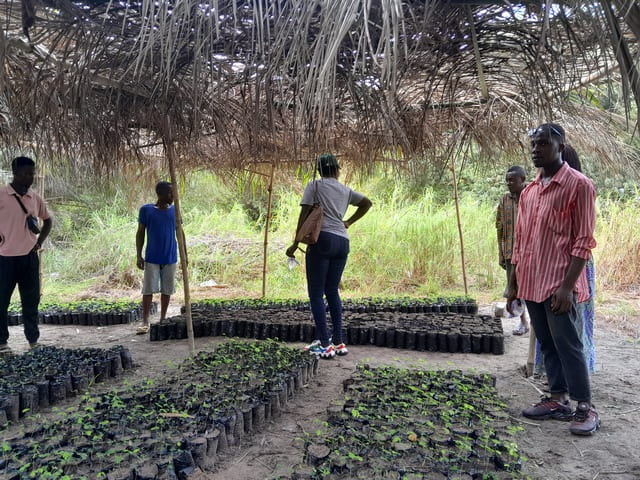
Lac Togo, Togo, August 2023
The population around Lake Togo is made up of farmers, fishermen and -women. This area is under strong demographic pressure and facing major ecological and social changes – deterioration of plant life, severe soil erosion, and growing poverty among the local population. Planting 100,000 trees in 10 villages and introducing market gardening will preserve biodiversity and improve crop yields, as well as boosting fishing by tackling soil erosion and stabilising the lakeshore.
The project began in October 2022 with contacts with the local communities concerned by the project. The first stage involved consulting traditional chiefs, heads of Village Development Committees (VDCs), women, young people, and farmers. During these meetings, the project’s objectives were clearly explained, and the opinions of participants gathered to ensure the defined objectives would be achieved.
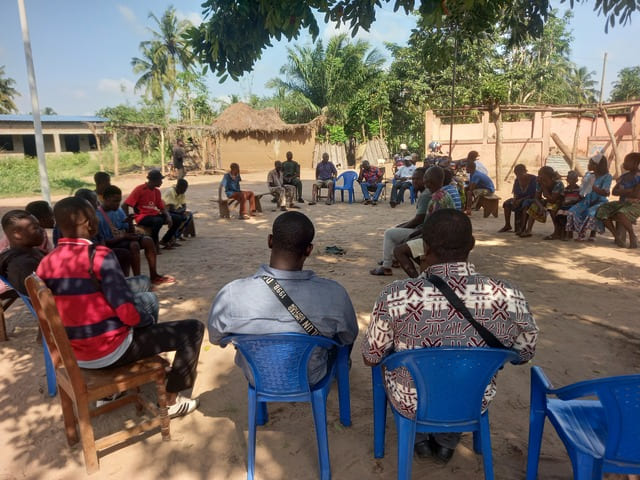
After the consultations in the 10 villages, public awareness-raising and training meetings were organised for the beneficiaries and their families. During these meetings, discussions centred on the perceived realities of the effects of climate change, the project objectives, as well as the agroforestry techniques and methodologies put in place by local partner APAF Togo. More than 1,300 farmers, 750 women and 550 men, attended the various meetings.
The local technical teams also took charge of collecting the equipment needed for the project, including:
- a second-hand 4×4 pick-up vehicle for coordinating activities,
- an off-road motorbike with full-face helmet for the technical teams to get around the area easily,
- a Garmin GPS for geolocating plantations and plots,
- a smartphone for monitoring daily activities and filling in the geolocation data collection software,
- a complete set of office furniture, including a computer for processing monitoring reports,
- tree seeds for fertiliser and forestry trees, plus market garden produce.
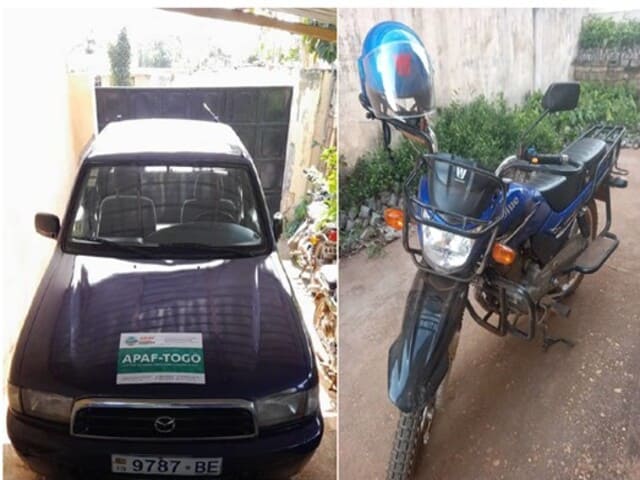
Following public awareness raising and training sessions, volunteer farmers organised themselves into nursery groups, supervised by project technicians, to make certain the nursery activities are properly carried out.
The nursery groups, accompanied by other farmers from the villages and APAF Togo technicians, identified nursery sites near water sources to ensure the young plants are watered. Together, they then build shade houses. This involves setting up a structure with poles and bamboo covered with oil palm branches. The aim is to create shade and ensure the young plants thrive.
The day-to-day work of the nursery groups involves various tasks:
- potting the bags, i.e. filling the bags with fertile soil,
- transplanting young shoots,
- aligning the bags,
- watering and caring for the seedlings.
Between February and May 2023, technicians distributed seedlings to beneficiaries, who then began planting. During this first wave of planting, 99,584 trees were distributed to beneficiaries and planted. Eleven species of fertiliser, forest, and fruit trees were planted.
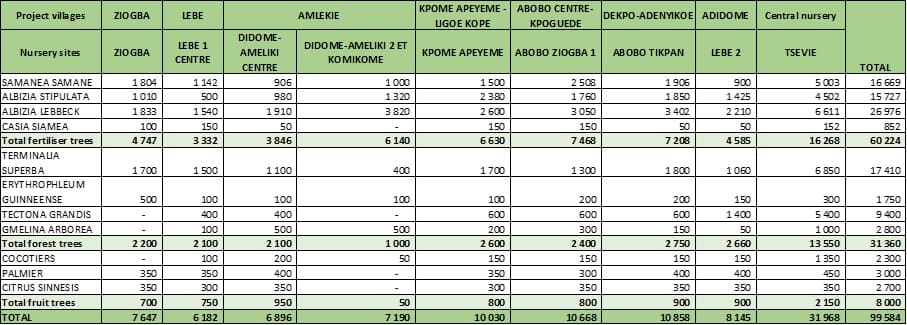
These plantations will be first monitored at the end of 2023 to establish the survival rate of the first wave. Beneficiaries will continue to receive training, especially in tree pruning and maintenance.
A second wave of planting between February and May 2024 will take into account the natural mortality rate of the project and meet the objective of 100,000 planted and perennial trees.
In addition to tree planting, the project plans to develop a market gardening activity to rapidly improve the standard of living for farming and fishing households. The shores of Lake Togo are marshy areas – ideal for growing tomatoes, green chillies, onions, gboma, spinach, taro, groundnuts, soya, mushrooms, and other crops. The proximity of Lomé will provide an outlet for these new crops.
During the first year of the project, Ademe, okra, nightshade, chilli, and off-season maize were all planted.


